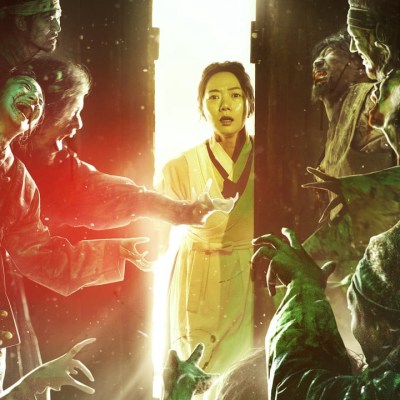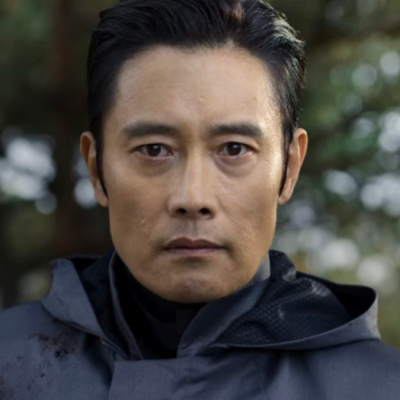While to many Americans it may seem like Squid Game came out of nowhere to dominate more than 90 countries, for the millions of people worldwide who watch South Korean television and movies, it’s another stellar entry in an ever-growing field. Korean film and television has been growing since the 1990s and is already incredibly popular across East, Southeast, and South Asia, as well as with Asian diaspora and others around the world. As Netflix has expanded globally, they’ve invested heavily in the thriving Korean industry. Thanks to that investment and K-culture’s overall rising stature, it was only a matter of time before a K-drama like Squid Game broke through in the West.
Contrary to a litany of English-language headlines, Squid Game didn’t come out of nowhere. Korea’s thriving entertainment industry is responsible for television, movies, music, and artists of all kinds. There are headlines in mainstream Western, English-language publications like Forbes going back for several years heralding the arrival of K-dramas. But for many Western viewers, if it’s not on Netflix, it doesn’t exist. Barack Obama referenced the Hallyu wave in a 2012 speech. Even the term “Hallyu” itself is a Chinese word applied in the 1990s to describe the surging popularity of all things Korean – here in the US, English-language viewers are only a few decades late.
In February of 2021, Netflix announced its plan to invest $500 million in Korean content over the course of the year. That builds on the streaming giant’s previous investments since it got into the production game in Korea in 2016. According to a September 2021 assessment from Deloitte, since Netflix’s 2016 entrée into Korean content production, it has brought $4.7 billion (almost 5.6 trillion won) to the country, as well as more than 16,000 jobs.
Read more
All this was added to an entertainment industry that was already thriving, creating dozens of new scripted shows each year. The industry has only grown to meet the demand during the pandemic and the international love for all things Hallyu wave, from films like Best Picture Winner Parasite to K-dramas to unscripted variety shows to DIY mukbang videos made by individual Koreans. As Netflix’s ability to gain new users in North America flattens, reaching users in global markets is increasingly important. As a result, they’ve invested in a foreign productions around the world and at a number of different points in the production. It’s important to note that Netflix did not build the Korean film and television industry. The hallyu wave – as the rising tide of all forms of Korean culture (beauty, music, television, food) is known – existed long before Netflix, they have simply been smart enough to catch hold of that wave and invest in it.
In addition to Netflix Korea’s efforts, Netflix’s The Swoon promotes K-content of all kinds to their global audience. Launched in 2019, the promotional effort is bilingual Korean and English and now encompasses multiple social media platforms, Youtube, Twitter, and Instagram, offering the kind of behind-the-scenes content and interviews that fans might normally find during a press tour, if these actors were invited onto late night shows or covered by standard American press tours.
Recently, several K-dramas have become global hits on Netflix. In 2020, the political romance Crash Landing On You took the world by storm with its star-crossed enemies-to-lovers story. A rich South Korean woman accidentally hang-glided her way into the DMZ between North and South Korea, and one might also say, eventually into the heart of the North Korean soldier who found her. The absurdity of the premise aside, the show represents all the best that a K-drama can be: funny, warm, a mystery/thriller b-plot, amazing clothes, class struggle, and way more fateful coincidences than makes sense – but who cares, this is true love! The show, which involved research with actual defectors from North Korea,
Other shows like thriller Vincenzo, sci-fi horror show Sweet Home, the grounded, Normal People-esque ensemble romance Nevertheless, and military action-thriller D.P. have all seen success internationally, each broadening the global appeal (and therefore potential audience) for Korean shows. Zippy romance Start-up even got some time on Netflix homescreens for some viewers, and slice of life romantic comedy Hometown Cha Cha Cha is currently wrapping up a successful run that started before Squid Game dropped.
Read more
While in many ways Squid Game is quintessentially Korean, the show differs from much of its industry in key ways. Ultimately, they’re differences that likely contributed to Squid Game’s global success. K-dramas typically run for one, sixteen-episode season, with episodes lasting an hour or more – an hour and twenty minutes isn’t unusual. That first episode length can be a sizable barrier to entry for new viewers not accustomed to it.
Increasingly, Western viewers look for a manageable binge, something they can knock out in a weekend or every night for a week so they can join the conversation. With only eight episodes, Squid Game mostly avoids bloat (wisely shortening its penultimate episode), and prospective viewers might be more inclined to jump on the trend, knowing it won’t take long to catch up. Episodes of new shows are typically dropped weekly, even on Netflix, in order to prevent spoilers in an ever-connected world. The worm may be turning on the binge vs. weekly model, but the masses that worship at the altar of Netflix haven’t quite gotten that memo yet, so being able to binge Squid Game immediately instead of having to wait for new episodes weekly like Nevertheless, or Hometown Cha Cha Cha likely worked in its favor.
Squid Game’s cast is clearly an immeasurable asset to its success. Lee Jung Jae (Player 456/Gi-hun) is a highly in-demand leading man movie star in Korea, the kind of star that makes people sit up and pay attention when he decides to anchor a TV show. While many Americans were surprised to see him clean up nice for interviews, his dashing clean-cut look is quite familiar to Koreans. Gong Yoo is well known both at home and abroad, with critical acclaim and name recognition due to the success of Train to Busan. Has anyone ever been tweeted about so much for so little screen time?
Finally model Jung Ho Yeon (Player 067/Kang Sae Byeok) and rising star Wi Ha-Joon (Hwang Jun Ho, the cop) are earlier in their career, but still have faithful followings and are well connected with other young stars who also helped promote the show, like Jennie from BlackPink, who shared a photo of her set visit to promote the show. All of this attention helped promote the show first among the audience familiar with these actors.
Squid Game capitalizes on three of the most powerful viewing trends on Netflix: variety/game shows, murder content, and big splashy action/adventure flicks. By combining all three with a hefty dose of existential crisis and the philosophical quandary of how far one would go, it’s a tempting package that appeals to our basest nature. In some ways, viewers still get to enjoy the fun of the games even though the stakes are much higher, because of the safety of the fictional narrative. Unlike many other murder shows, none of these deaths are real, people are to some degree forced into it since it’s a kill-or-be-killed situation, and the best characters never actively take a life. We aren’t the VIPs watching a real-life Squid Game, but the show sub-textually posits the question: how far removed from them are we?
It remains to be seen what comes next. For Squid Game, that could mean a second season, an unusual (but not completely unheard of) occurrence in Korean television, but something American audiences expect of any hit show, even one originally intended as a limited series.
Read more
Hopefully Netflix will continue to invest in high-quality K-content across genres – and promotion of that content. Will the global audience that Squid Game built make the leap to other Korean shows and the rest of the hallyu wave? If the K-wave thus far and prior Netflix megahits are indications, it’s likely that some will drop off, as Squid-levels of sustained attention are nearly impossible, but many will continue to explore other dramas, variety shows, K-pop like the music and stars featured in dramas, world-famous K-beauty, Korean food like the dalgona candy in Squid Game, and even learning Korean to form their own opinion of translations. For the content-hungry curious, the Korean wave offers a nearly endless supply of interconnected entertainment.






